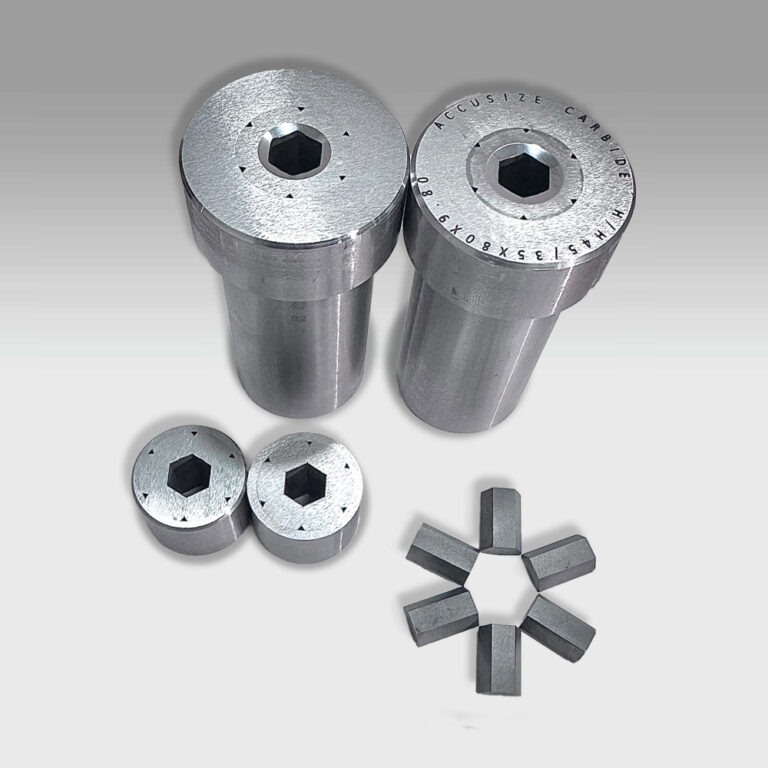The segmental hex hammer and segmental hex dies play a crucial role in the manufacturing of screws, particularly those with hexagonal heads. These specialized tools are integral components of the production process, enabling the formation of precise and uniform hexagonal shapes. The segmental hex hammer operates through a meticulously designed mechanism, exerting controlled force on the material, usually metal, to shape it into the desired hex pattern. This process demands precision engineering to ensure the resulting hex head meets exacting standards. Complementing the hammer, the segmental hex dies are equally critical. These dies feature indented grooves or ridges that match the desired hex shape. When employed in conjunction with the hammer, they exert focused pressure, facilitating the transformation of the raw material into a perfectly formed hexagonal head. This synchronized interplay between the hammer and dies is a testament to the intricate engineering required for efficient and consistent screw production. These tools exemplify the marriage of advanced metallurgy, engineering expertise, and manufacturing precision that underpins the creation of high-quality screws used in various industries around the world.
Contact us for any query. We are happy to help you.
Features
- Exceptional Strength and Toughness: Tungsten carbide combines impressive compressive strength with toughness, allowing it to withstand heavy loads while resisting fracture and chipping.
- Versatility: Tungsten Carbide tools can be used for a wide range of fastener materials, including stainless steel, alloy steel, and non-ferrous metals. This versatility makes them a practical choice for a variety of fastener production applications.
- Stability in High-Speed Machining: Tungsten Carbide tools can maintain their cutting performance at elevated cutting speeds, allowing for efficient high-speed machining operations commonly employed in the fastener industry.
- Improved Surface Finish: The precise cutting capabilities of Tungsten Carbide tools often result in a smoother surface finish on fastener components, reducing the need for additional finishing operations.
- Customizable Designs: Tungsten Carbide tools can be engineered with specific geometries, coatings, and edge preparations to suit different fastener production requirements, enhancing their adaptability to specific machining tasks.

